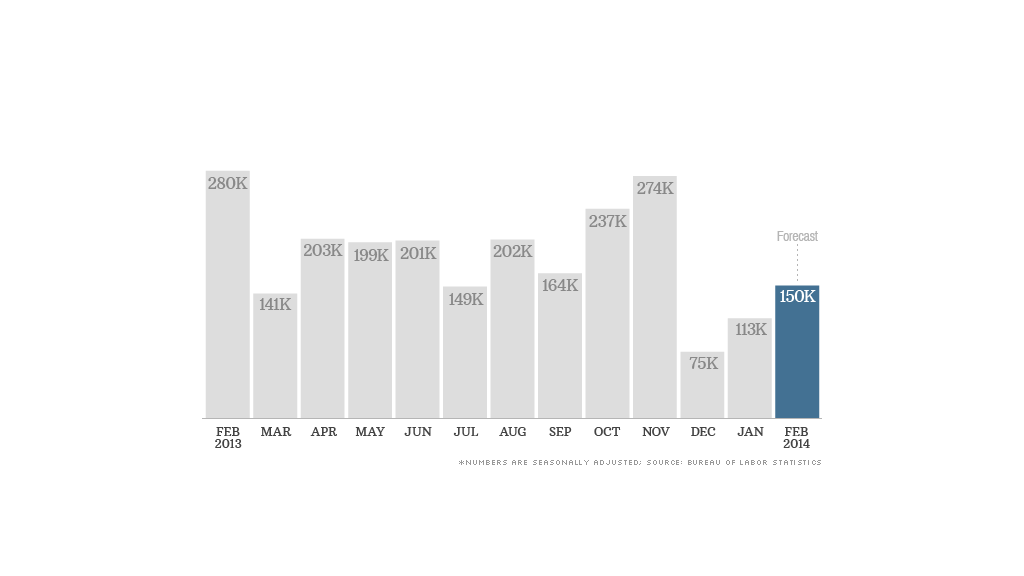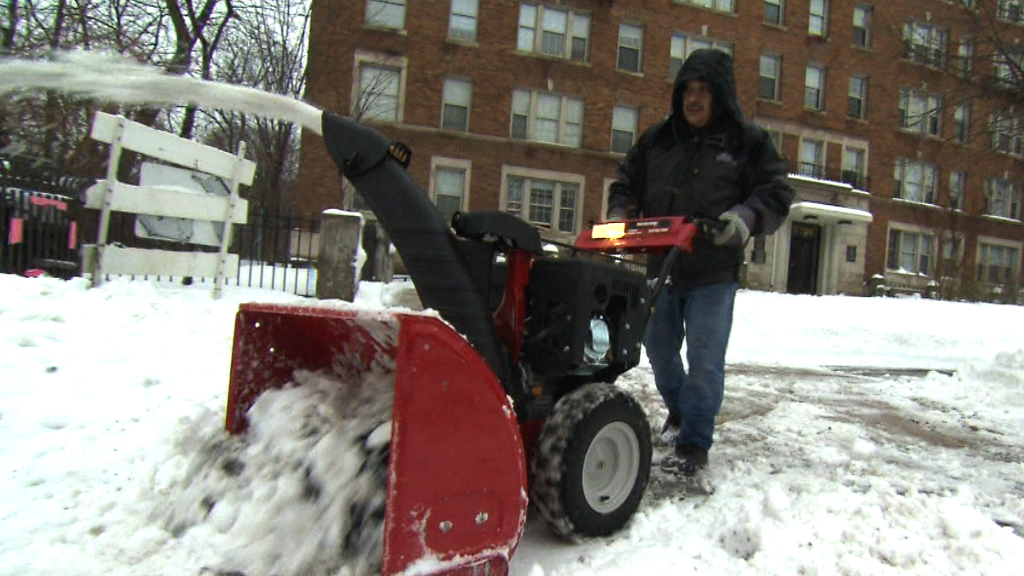
Employers still have the winter blues.
Forecasts predict mediocre hiring in February, that probably would have been stronger if snow storms hadn't put a damper on the U.S. economy.
The government is scheduled to release its monthly jobs report Friday, and economists surveyed by CNNMoney expect it will show the unemployment rate remained at 6.6%, as the U.S. economy added 150,000 jobs last month.
While that would be a slight improvement from January, it's still nothing to write home about. In the 12 months leading up to the winter, the economy had been adding an average of 205,000 jobs each month. But then the job market hit a rough patch, which economists mostly blame on severe winter weather.
Without winter storms, the forecast for February would have predicted a gain of about 193,000 jobs. And it already appears that the weather had an impact on the job market last month. Payroll processor ADP announced Wednesday that the number of private sector jobs added in February was below forecasts.
"Extreme winter weather may very well have had an impact on hiring in February and should we get yet another weak jobs report, it will become the excuse du jour for the consistently lackluster recovery in the U.S. labor market," said Sean Snaith, director of the Institute for Economic Competitiveness at the University of Central Florida.
Ice and snow storms pummeled the Midwest and eastern parts of the country throughout February. Blizzards can slow the economy and postpone hiring as offices close, flights are canceled, businesses lose power, construction and other outdoor work are put on hold, and consumers stay indoors instead of shopping or eating out.
Other recent data show new home construction, retail sales and auto sales all suffered setbacks recently, which industry experts attribute mostly to the colder-than-usual temperatures.
If weather truly is the culprit, then the latest bout of weak data should prove temporary, and the economy will likely pick up in the spring.

Lawrence Yun, chief economist for the National Association of Realtors, believes construction jobs in particular could be poised for stronger growth once the snow and ice thaw.
He points to data showing new home construction has grown 50% over the last two years, yet residential construction jobs have risen only 8% -- a trend he says implies that "hiring activity in the home construction sector could burst out soon."
Construction was the single hardest hit industry in the recession, accounting for about a quarter of all the jobs lost. As of January, construction workers still had a 12.3% unemployment rate.
Yellen blames it on the weather
Economic data that's skewed by weather can complicate the Federal Reserve's job, by making it difficult for central bakers to get a clear read on the underlying health of the economy.
Last week, Federal Reserve Chair Janet Yellen told a congressional committee she blames much of the recent weakness on the weather. The Fed is currently in the process of winding down its bond-buying program, and unless the economic picture changes dramatically, it will stick to that plan, Yellen said.
The Federal Reserve's next policy-making meeting is scheduled for March 18-19, but it's not until at least April that economists expect U.S. economic data to be unaffected by weather.


